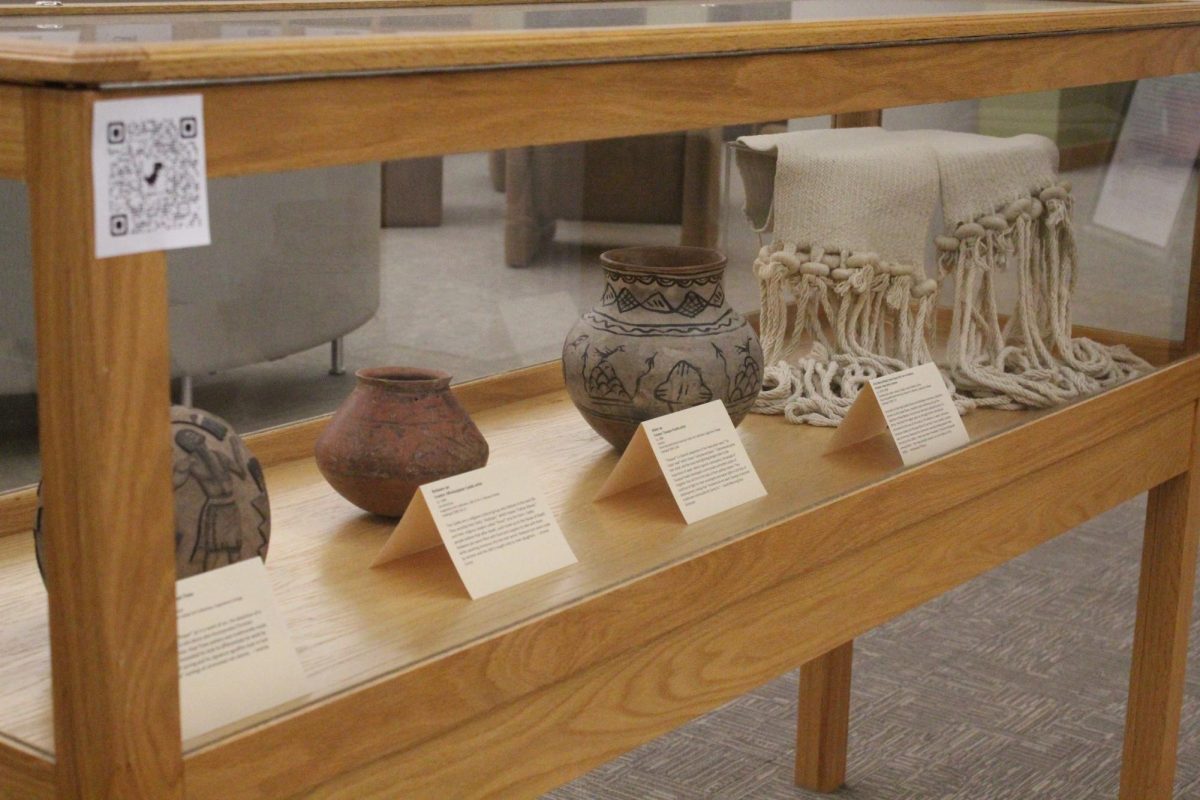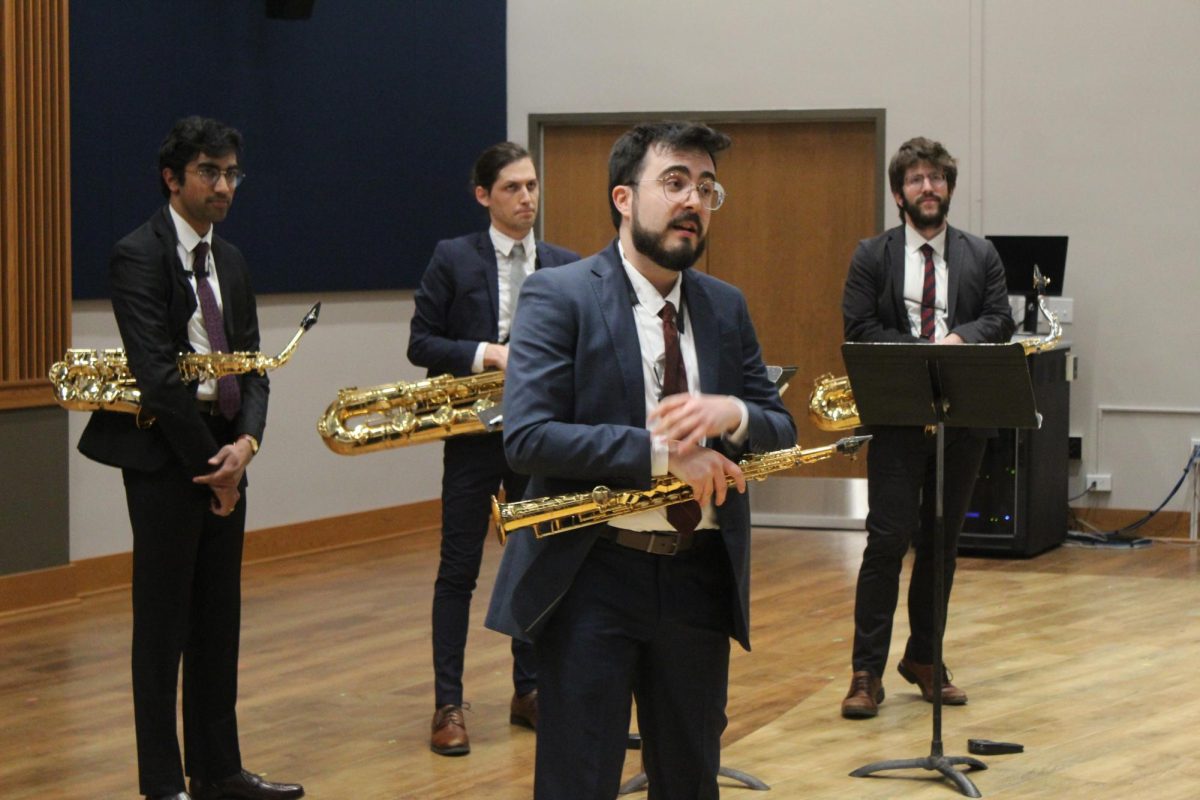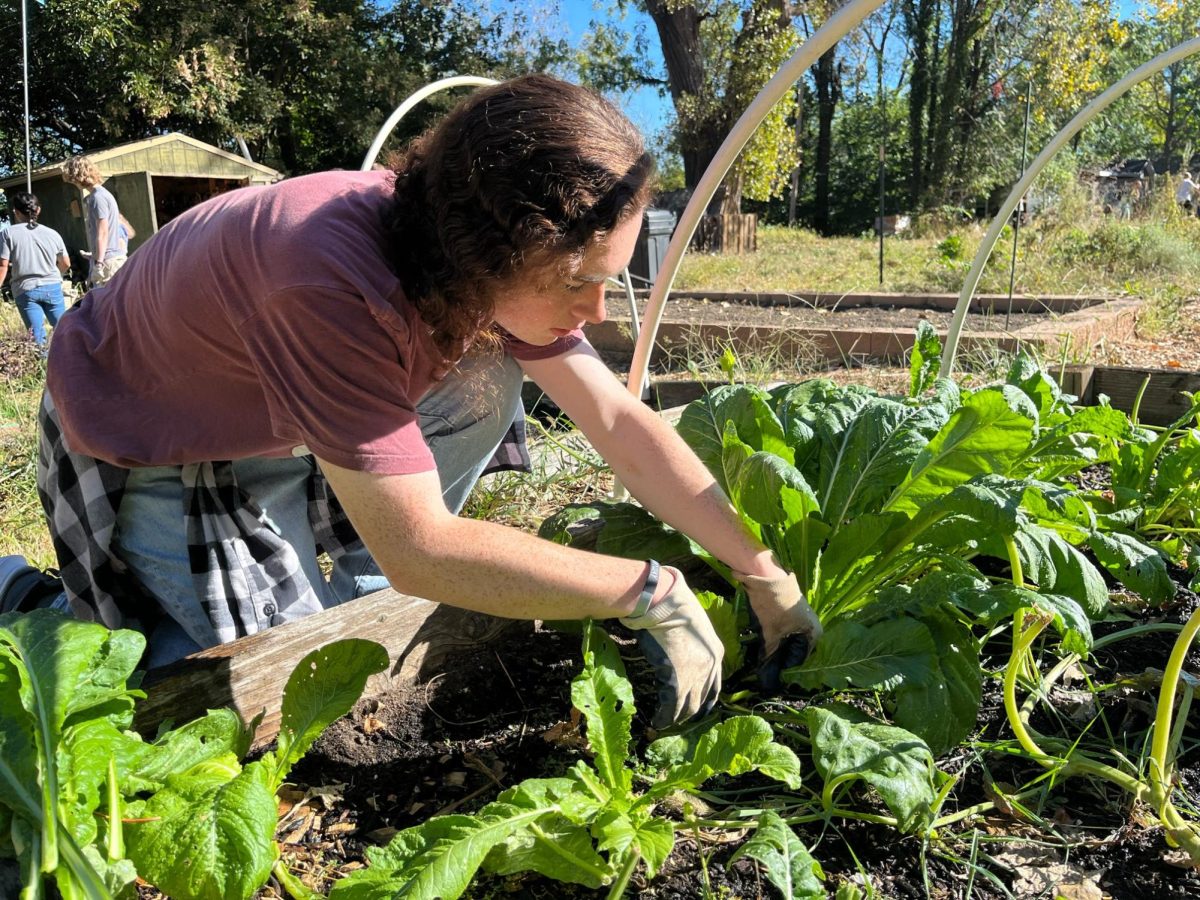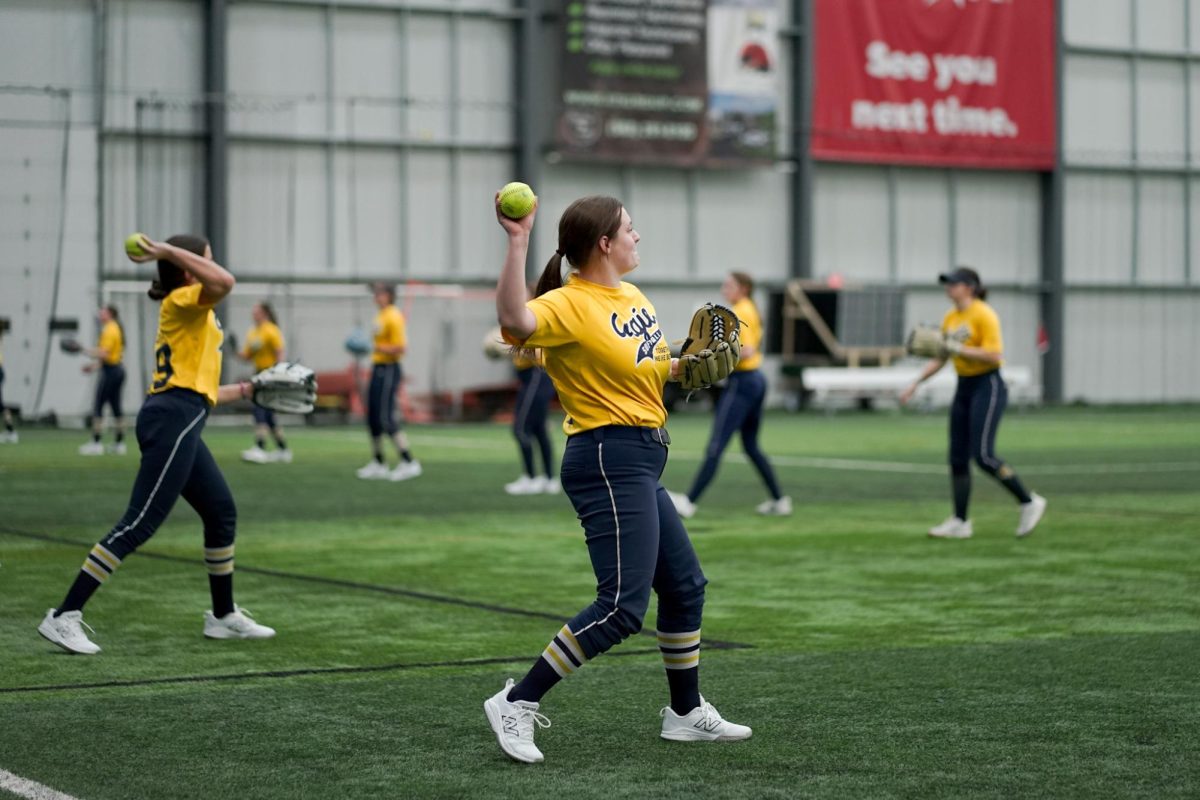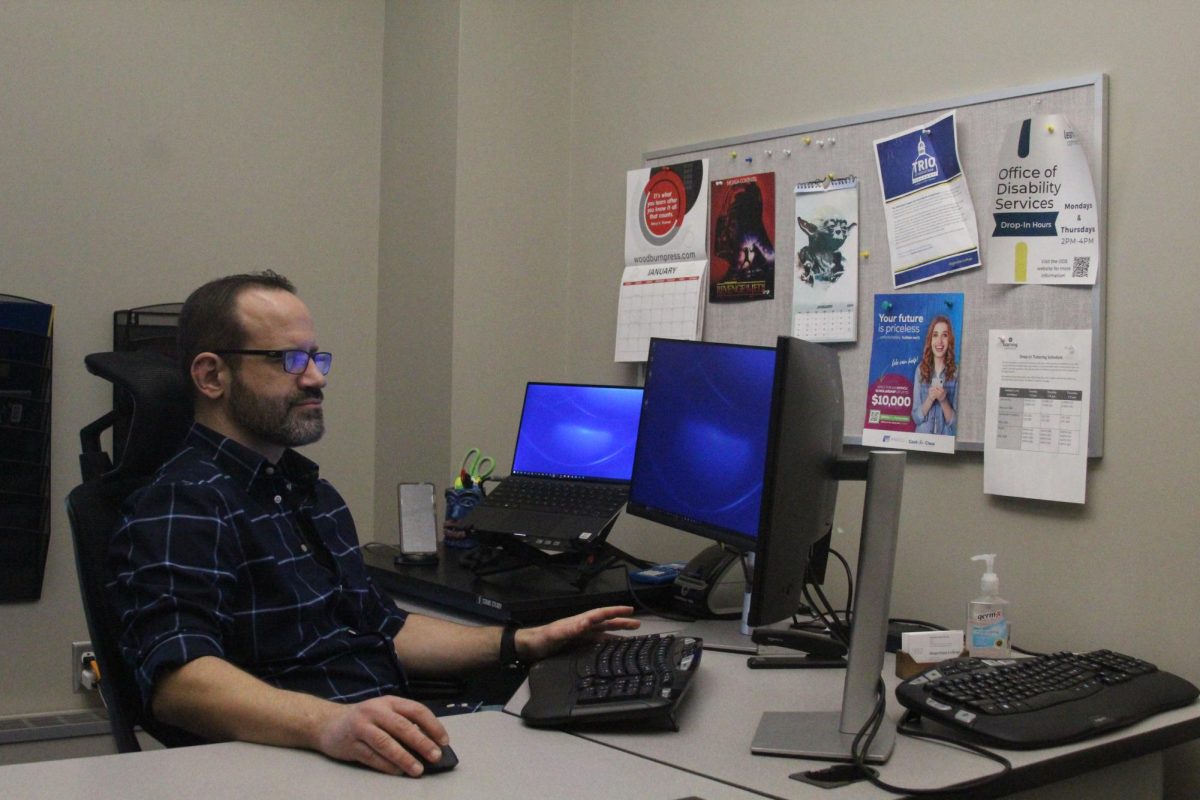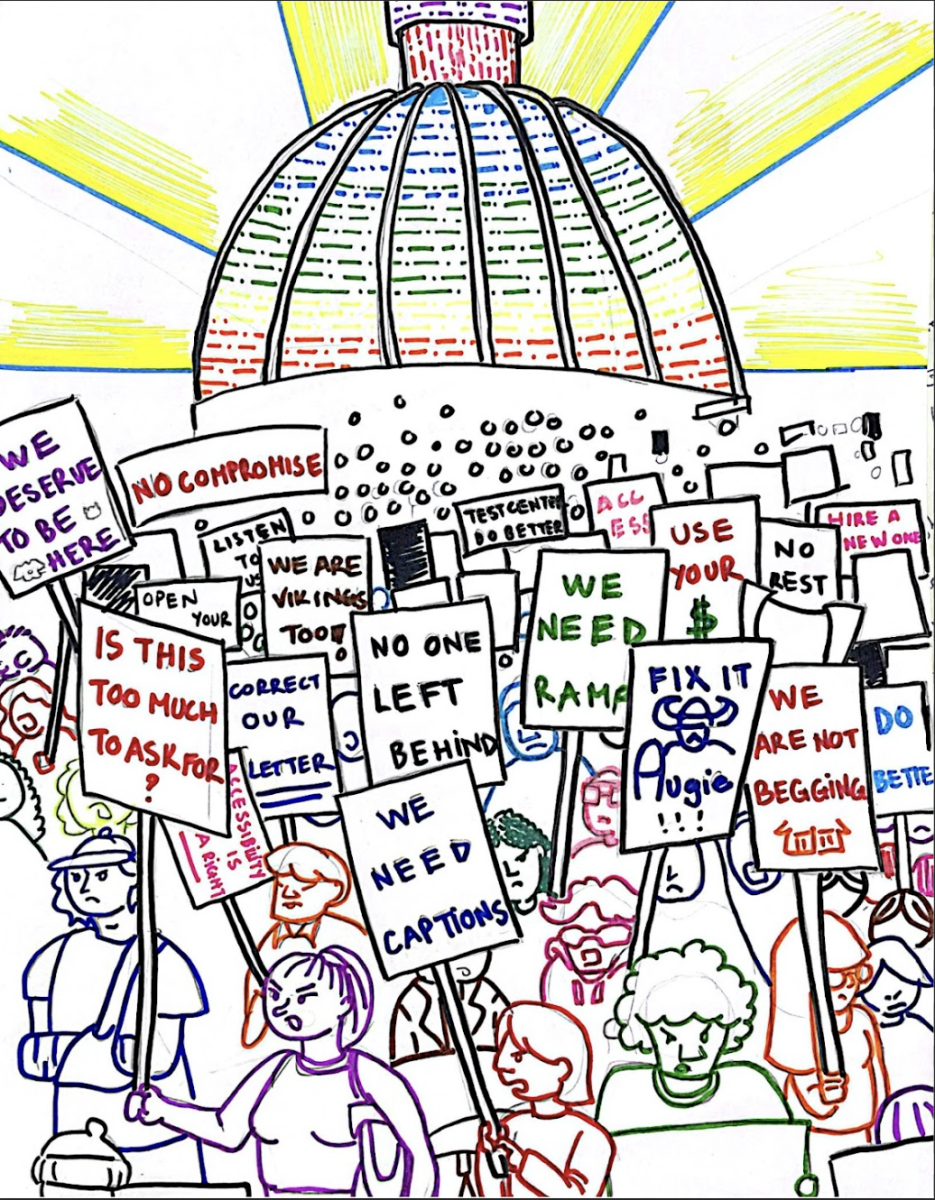When thinking about Augustana, every student knows the effort it takes to face the classloads and surplus of stairs and hills. But, despite the daily challenges everyone has in common, not every student handles classes or traversing campus in the same way.
The Office of Disability Services is constantly working to help all students achieve their best in each aspect of the college experience. Dimitrios Jason Stalides, the director of the office as of last semester, has been working to make sure the office has options to serve all students as best as it can.
For students with disabilities, the office provides accommodations. There are a lot of different types of disabilities the office helps students get accommodations for, including some that may not immediately come to mind.
“There’s physical disabilities, there’s learning disabilities [and] there’s developmental disabilities like ADHD or autism, but other things that would qualify for accommodations include medical issues, health issues [and] mental health issues as well,” Stalides said.
Accommodations vary student by student, so there’s a wide range of options available. Stalides provided some examples of what accommodations are available.
“The Office of Disability Services does a lot of different things. I would say the primary thing that we do is work with students who need accommodations, and it’s not just students who have a disability,” Stalides said. “There are several typical accommodations, and they tend to be things like extra time on tests, extra time on assignments and there’s some classroom accommodations,” Stalides said.
This list only includes a few of the possible accommodations offered for students to help them with their coursework.
Bringing awareness to these accessibility services has become increasingly important, especially with more students realizing that they could benefit from accommodations.
“There’s a big increase in students who didn’t know they had a disability, not just here at Augustana, but just nationwide,” Stalides said.
For students who came into college with an accommodation from high school, their accommodation is processed through the Office of Disability Services. But Stalides said that accommodations are still open to change for each student.
“Once they have an accommodation letter, it’s good the whole time they’re here with the college,” Stalides said. “This is something that’s revisable, really at any time they could reach back out to me and we can talk again and see what we can or will or could change.”
Accommodations help students be more successful depending on what they need and increase equity. In order to make sure that these resources are utilized, accessibility options need to be more advertised by the school.
Coordinating accommodations is only part of what can be done to help students. An increased focus on education can help professors understand the challenges that are faced and help students understand the steps that can be taken to address them.
“I think there needs to be a lot more awareness of accessibility and accommodation issues so students can have a better idea of how they can get accommodations and how they can use them to be successful,” Stalides said. “On the same side, I think there needs to be more training for professors on how to best provide accommodations in the classroom for their students.”
With Stalides just starting his time as director, he hopes to further education on accessibility in order to help the office and professors better serve students in the future.
Beyond just providing education on accessibility, Stalides also has some thoughts on how to improve accommodations access for all students.
“I really want to turn the conversation around to ways that we can provide accommodations inherently in how instruction happens, typically referred to as a universal design, so that students don’t always need accommodations, it’s just built into how classes happen,” Stalides said.
Augustana housing is another part of the college experience where accommodations exist to help students succeed. Amanda Tumbarello, assistant director of Residential Life, said accommodations in an individual student’s experience can help them feel at home.
Just as Stalides said learning accommodations are individualized, the housing accommodations are also specific to each student.
“The idea of accommodations is a really individualized thing,” Tumbarello said. “Everyone is going to need something different, and even two students or two individuals who need the same thing might interpret that need differently.”
Housing accommodations serve students by allowing them to have a comfortable space on campus that helps them achieve their academic goals. These accommodations can also include emotional support animals (ESAs).
“[A housing accommodation is] making sure that [students] can live here and still continue to participate in the educational program,” Tumbarello said.
When it comes to housing selection, some accommodations can include emotional support animals or air conditioning. Since air conditioning for First-Years is only a guarantee in Westerlin Residence Hall, communicating accommodation options becomes very important for incoming students. Especially with the limited air conditioning, it’s important for everyone to keep in mind the need for those accommodations to be available.
“Accommodations, I think, sometimes get this stigma or this reputation of like, ‘oh they’re giving different advantages to people’ and that’s not really the case,” Tumbarello said. “The idea behind accessibility and accommodations is to break down a barrier that might otherwise be present.”
One of Augustana’s inherent barriers are its geographical features.
“We have a very hilly campus and there’s nothing that you or I can do to change that,” Tumbarello said. “But I do think it impacts accessibility.”
While to current students this is a well-known fact, communicating this information to prospective students is important to Tumbarello because it impacts what accommodations can be made.
“One thing that I always try to do is provide a lot of transparency for students, particularly incoming students, and make sure they’re aware of that,” Tumbarello said.
Communicating with students is a big part of providing the right accommodations for everyone. Because of the wide variety of possible accommodations that are needed, and the number of students who request them, there’s a lot of college staff who can help students get accommodations.
Jennie Hemingway, the Title IX Chief Coordinator, works to make sure students have the proper resources when it comes to providing accommodations.
“I am the appeal officer for students, [for] if they ask for a particular accommodation, and they don’t get it and they want to appeal that,” Hemingway said. “I also work with the Office of Disability with students who have short-term disabilities and our students who have concussions.”
Short-term accommodations are an important part of the accessibility options on campus, because students face unexpected challenges throughout the year, such as an unforeseen injury. Even if they didn’t need any before, having accommodation options for even a small amount of time allows all students to have the resources to succeed no matter what obstacles they encounter.
When interacting with students, Hemingway said she appreciates hearing their experiences so that the college can gather a better understanding of what individuals need. Serving each student means that a lot of accommodations could be needed, so the more students who share, the better the college can serve them.
“I always appreciate when a student comes to me and says, ‘I’m not sure if you’re aware of this,’ and then tells me the issue that they’re experiencing because it may be something one on one to intervene or it may be [that] I have to take that issue sort of up the chain, if you will, and talk about it in a larger, campus-wide context,” Hemingway said.
Students advocating for themselves and each other will improve Augustana’s accessibility options and recognize what the college does now that is helpful. In order to bring awareness to challenges or new solutions, students need to voice their concerns.
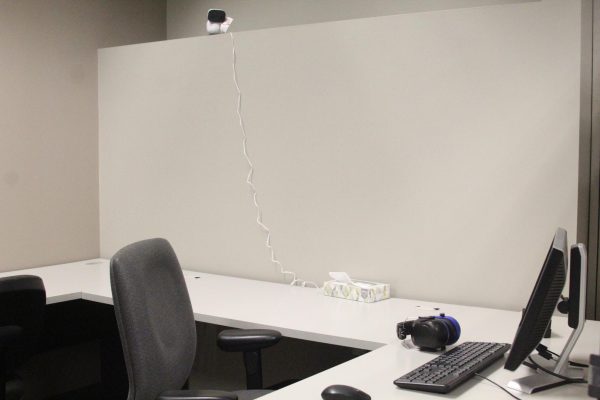
After just starting this position, Stalides said he has been excited about the Office of Disability Services’ efforts in helping students achieve their best. He wants to continue this trend and hopefully, with ideas such as including accommodations within classes, students can keep achieving their goals.
“I’d be very interested in being a part of… just putting this college on the map as a school that is a leader of helping students with any type of accessibility issues to be successful and not only successful as college students but successful [in] life and, you know, helping them to find their strengths and then bringing those strengths to the world,” Stalides said.


